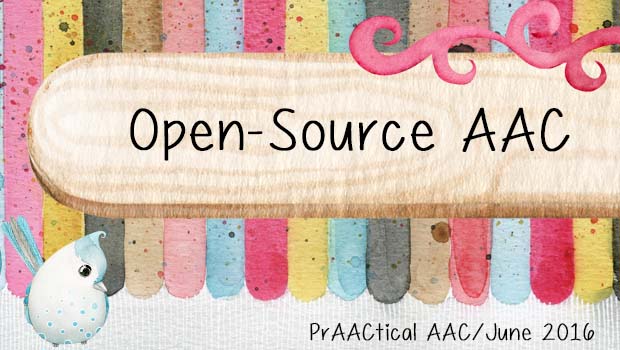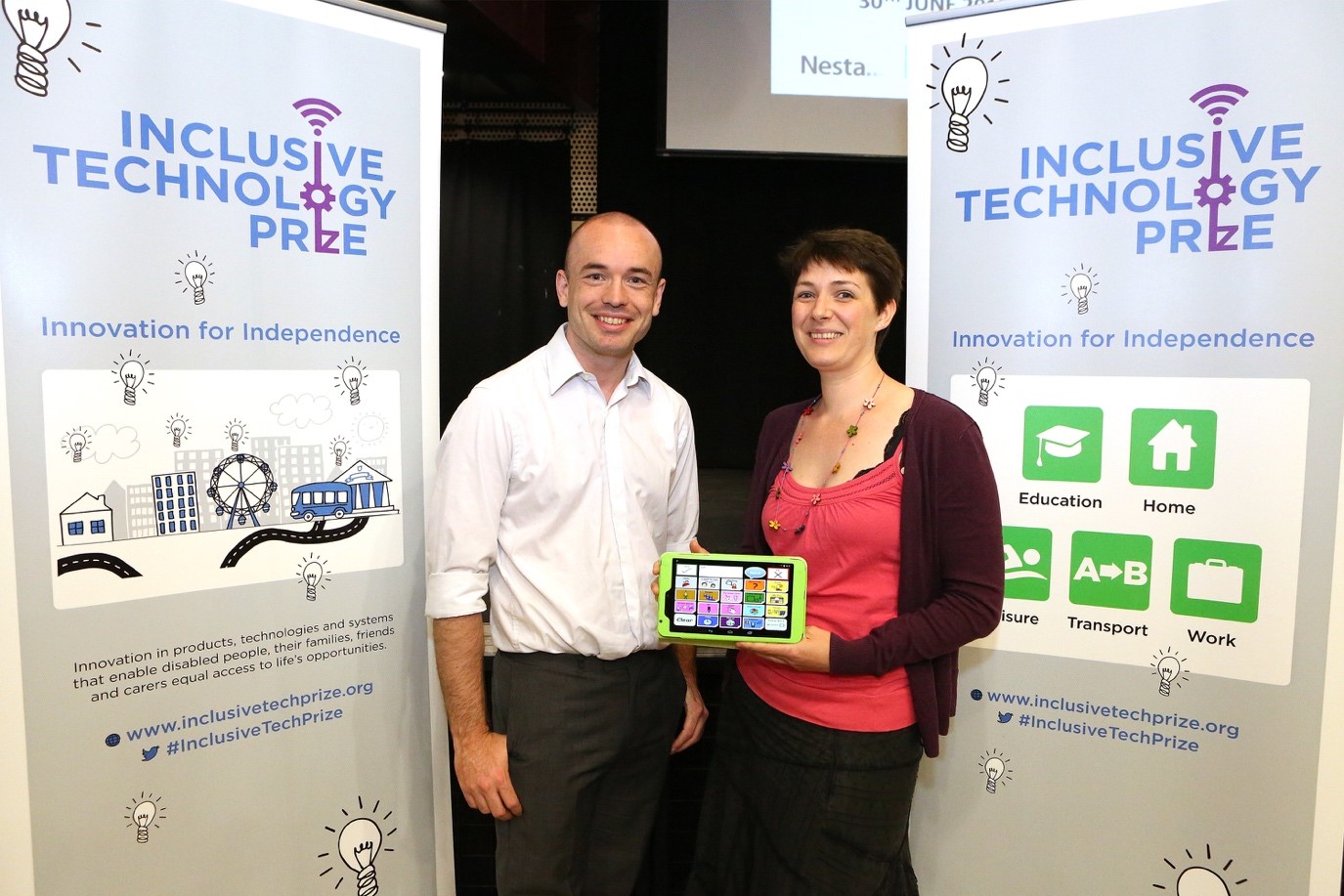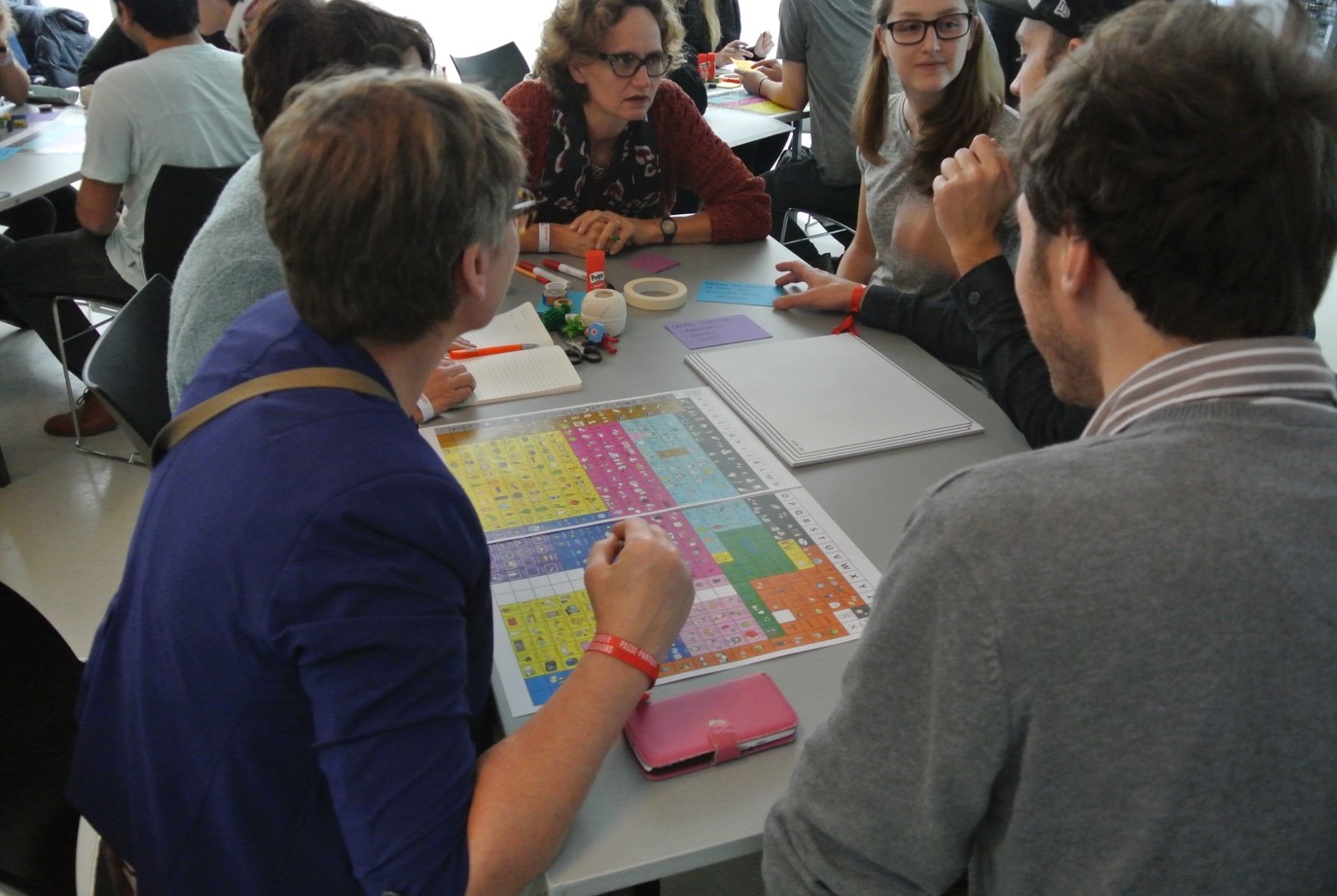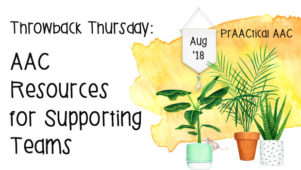Open Source AAC

What’s better than a bunch of bright, dedicated professionals who love improving the state of AAC? How about a group that facilitates the collegial sharing of this kind of information?! In today’s post, Dr. Joe Reddington discusses his efforts to promote open-source AAC solutions. You can read about an earlier project, CommuniKate, here.
:::::::::::::::::::::::::::::::::::::::::::::::::::::::::::::::::
AAC Wins the Inclusive Technology Prize
A few months ago, the nonprofit I run was given £50,000 to make open licensed resources (both materials and software) a key part of the AAC world.

Figure 1: Kate McCallum and Dr Joe Reddington, winners of the Inclusive Technology Prize
There are lots of definitions of open-licencing that make it sound more than what it is. Open-licencing is nothing more or less than letting people share. One of the reasons we really like PrAACtical AAC is that they release their work under Creative Commons, letting people make use of it.
…and when one set of people share their work, it gets built on more and more. So when Mulberry Symbols created a free set of symbols for AAC, they made quite a lot of people’s lives easier. Because the symbols were shared, it was much much easier for us to use them for CommuniKate, which is an open licenced pageset, that anyone can put on any device.

Figure 2: Kate McCallum with a communication book version of CommuniKate
Because there is an openly shared pageset, it was easier to promote open formats for saving such pagesets. Any because someone has shared both the open format and the open pageset, it’s getting easier and easier to built an open, AAC device. One that is completely free and useful for people in AAC, researchers, and schools.
Of course, open shared software will never compete with commercial manufacturers at large scale in developed countries – the infrastructure and quality are things that are hard to build, but there is a real chance that developing countries, countries that have been priced out of the AAC world, are the ones that will really benefit from open forms of communication.
About Us
The funding we raised is enough to pay costs for a year or two at least, and it is I’m always surprised by what a group of hard-working people can put together in a year.
One of the first things we put together was this: showing how we could use PowerPoint to directly edit AAC content. It’s an early prototype, but it shows how people can experiment with doing things differently.
We’re going to use our funds to speed up something that is already happening – the fostering of a true open source framework for AAC technology. For years, technical people have built beautiful resources for AAC users, but they have been working alone. We want to get these people to talk to each other, share their work, and build on each other’s achievements. For too long, we’ve had technical people who might have wanted to contribute to something but have had no starting point.
Joining in
If you have an AAC project that you’ve built and want to share, then get in touch and we’ll help out with the process. If you got halfway through something a while ago and are looking for some people who might want to help out, then get in touch.
Equally importantly, If you are interested in helping out. If you can help with testing things out, if you know a programmer who has always wished there was something they could do, if you know someone who can help translate pagesets, then get in touch.
We’re looking forward to having a stand at ISAAC this year showing some of the things that have been built – by all means drop by and say hello.

Figure 3: conference attendees helping to design a open tool for privacy of AAC users; Photo Credit: Makayla Lewis
Filed under: Featured Posts, PrAACtical Thinking
Tagged With: collaboration, emerging technology, open source
This post was written by Carole Zangari




